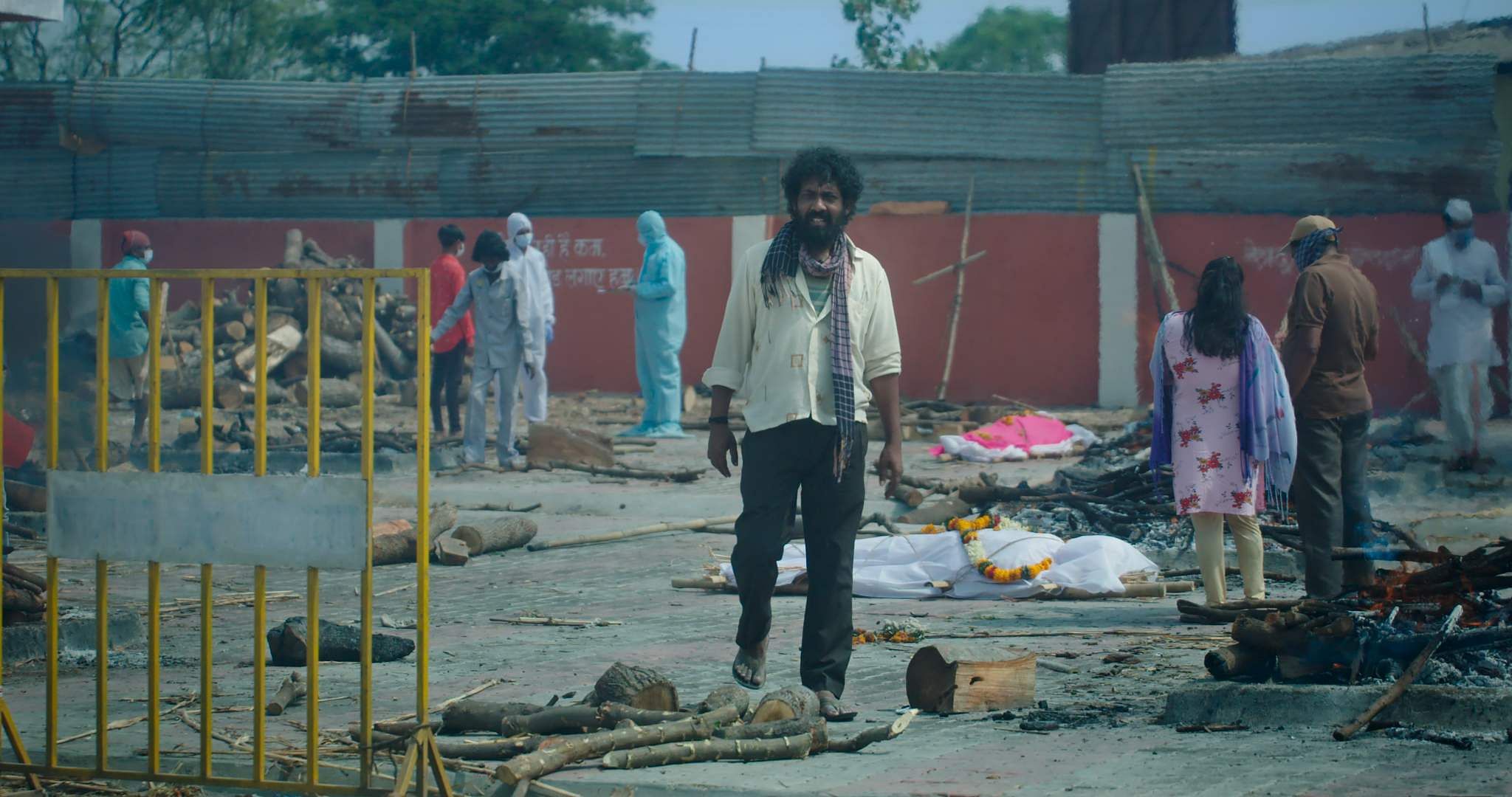By Rachit Raj
I have always believed that an anthology is a tricky idea right at the surface. Having multiple creative voices lending a part of themselves to each of the allotted short narratives reeks of patchiness that becomes more obvious in the face of a poorly threaded central theme. Netflix’s Ajeeb Daastans and Feels Like Ishq comes to mind when you think of the flawed nature of recent anthologies in India.
Thankfully, Unpaused: Naya Safar works better than most of the recent anthologies (for me it worked better than the well-intentioned Unpaused, too). The reason behind that is simple. The thread of the second wave of Covid-19 is as powerful a theme, as relatable, and uncomfortable an experience that one could tap into right now as an artist.
The fear, of course, is to degrade the tragedy for the sake of drama; trivialize the complexity of that period for easy, accessible storytelling. Thankfully, all these films seem to come from a place of honesty, ranging from a feeling of a warm hug to a gut-wrenching reminder of the darkest side of the wave that the closest we felt to an apocalyptic event in our living memory.
These shorts, while thematically diverse, and tonally of various shades, somehow make sense to be pitched together. The first one, The Couple is a story of a young married couple living in Mumbai; a life that is a few notches above their paycheque and only going to get trickier as the narrative thickens. Shreya Dhanwanthary, and Priyanshu Painyuli make for a likeable couple, making the short by Nupur Asthana work despite some writing inconsistencies.
The conflict feels real. Asthana smartly uses pandemic as an idea, getting the virus a far-fetched concept for these characters, focusing on the more job-related crisis that defined the second wave for a lot of those living in an urban setting. The final moments reek of a simplistic resolution, but this short film was never aspiring to be anything more than a warm hug of love for its viewers, and Nupur Asthana delivers on that.
The second, and by far the best one in this anthology involves a woman – a government school teacher – working in Covid War Room. Directed by Ayappa KM, and expertly led by Geetanjali Kulkarni, War Room builds the tension of the times brilliantly. The look of the short is murky, as if the concept of death is larger in its geography than death itself.
The use of recurring visuals of diminishing number of available beds is both terrifying and creatively brilliant. In the midst is this woman who has little to lose, and a skewed sense of betrayal. The film explores the moral ambiguity of a person who has already lost what many feared of losing in the second wave. There are no resolutions, and we see this woman as nothing but a conflicted, chaotic reminder of life in the aftermath of a tragedy, and in an anthology set during the second wave of the pandemic, it is a good thing that a protagonist like this given a space to exist.
The third, Teen Tigada, by Ruchir Arun is easily the weakest film here. Designed around three men who are stuck in the middle of nowhere as the country shuts down in the second wave. Arun finds a stream of humour in the exploration of their psychological response to being trapped in this isolated space.
A lot of Teen Tigada works as a character analysis, forcing us to see how individuals – all with a pressing crisis of their own – deal with the lockdown. The film is an attempt to hint at the response of hate being overpowered by a humane sense of unity in times of crisis. But despite some well-written scene (one involving the police and samosa is especially funny), Teen Tigada feels oddly disjointed, as if the director is forcing themselves to be something that they are not. This could be Arun’s attempt to move past the Little Things era, but despite obvious honesty, it remains a half-baked attempt in an anthology that has already been elevated by a terrific War Room just before we enter the world of Teen Tigada.
The next, Gond Ke Laddu is a simple, heartwarming tale of an elderly woman learning the workings of technology to reach out to her daughter during the lockdown. Neena Kulkarni shoulders the responsibility of driving this Shikha Makan directorial beautifully, despite a mildly frustrating track about a delivery guy and his partner, who add to the flossy feel of the film, but also works as a distracting presence in the narrative.
This brings us to the last and by-far the most triggering film of the lot. Vaikunth, directed and acted by the wonderful Nagraj Manjule, which is about suffering and the invisible sense of suffocation that comes with the kind of grief that was rampant during the second wave. Vaikunth is a visually strong movie about a worker at a crematorium ground, and his son as they struggle with finances after being asked to leave their place by the landlord.
On paper this sound like The Pursuit of Happyness, but you can trust Manjule to invest the audience in a simplistic narrative with the complexity of cast culture of the country. Manjule delivers a harsh performance, giving us a glimpse of a life that stands as the stark opposite to that of the characters we met in the first film of the anthology, The Couple.
This wide spectrum of characters we find in Unpaused: Naya Safar make this one of the better anthologies in recent times. Unlike others where one short shines over a debris of mediocrity, every short here comes with a purpose. Some work better than the others, but they all manage to give us different shades of the experience of the second wave of Covid-19.
[Read the author’s work on his blog here]







Leave A Comment
You must be logged in to post a comment.